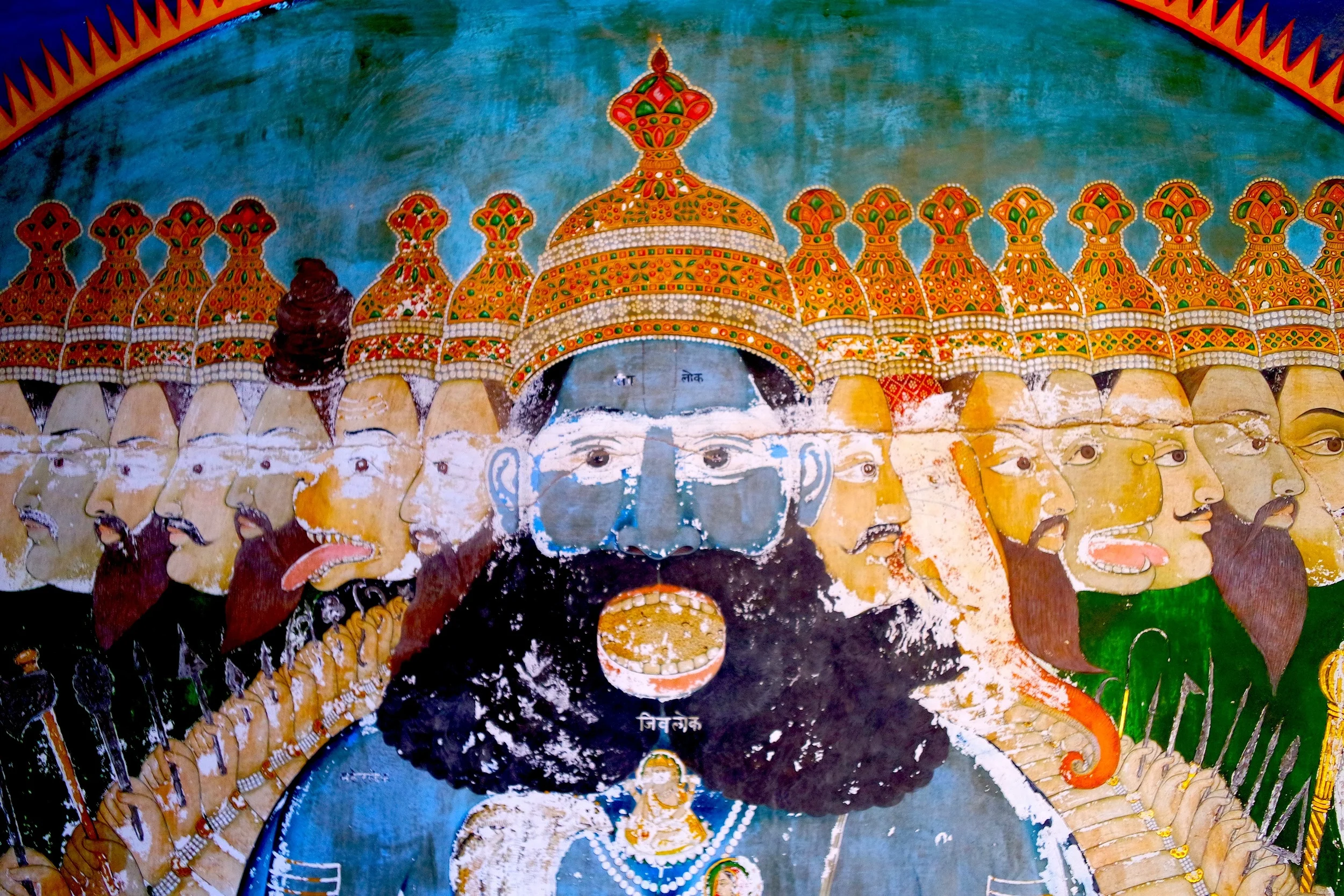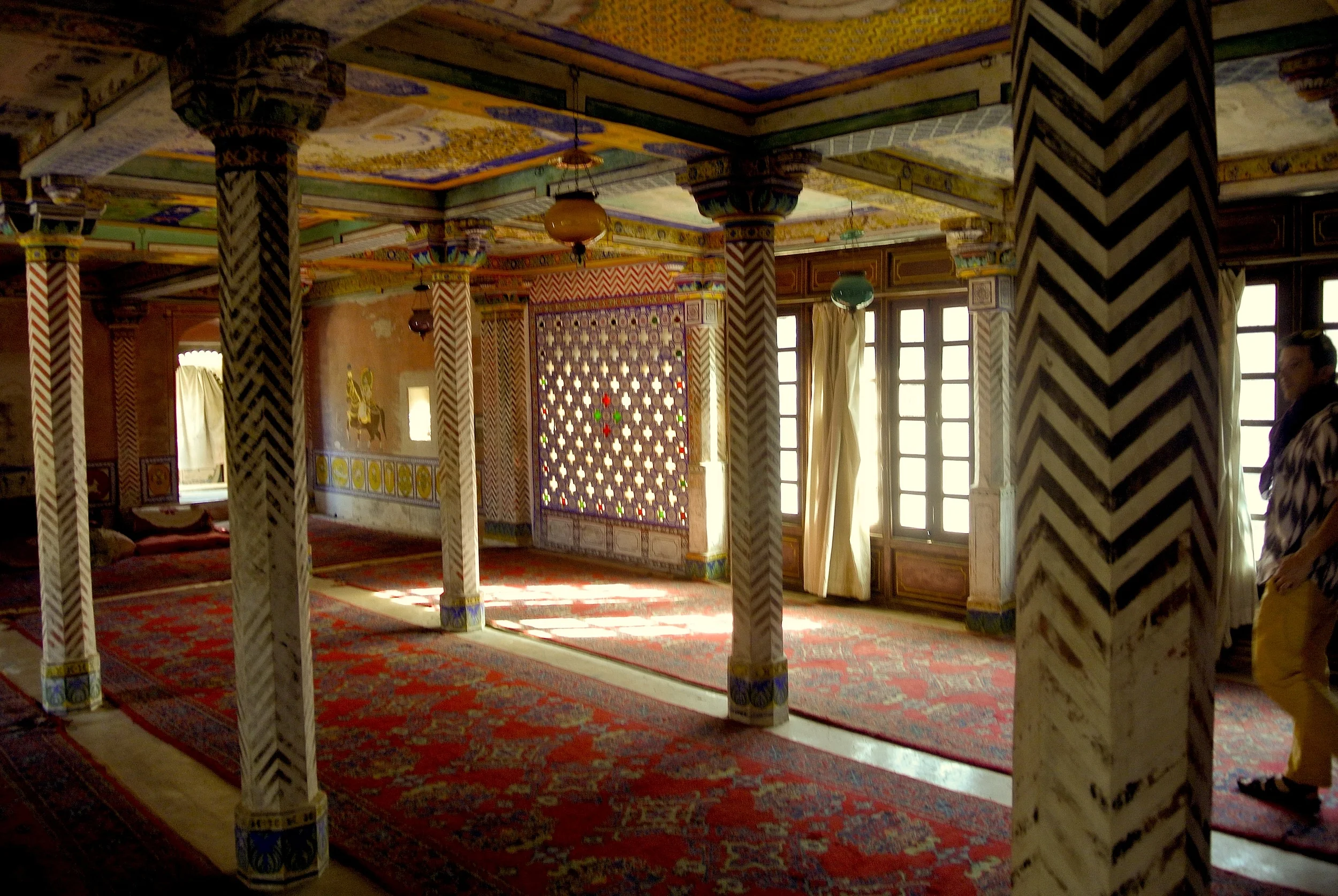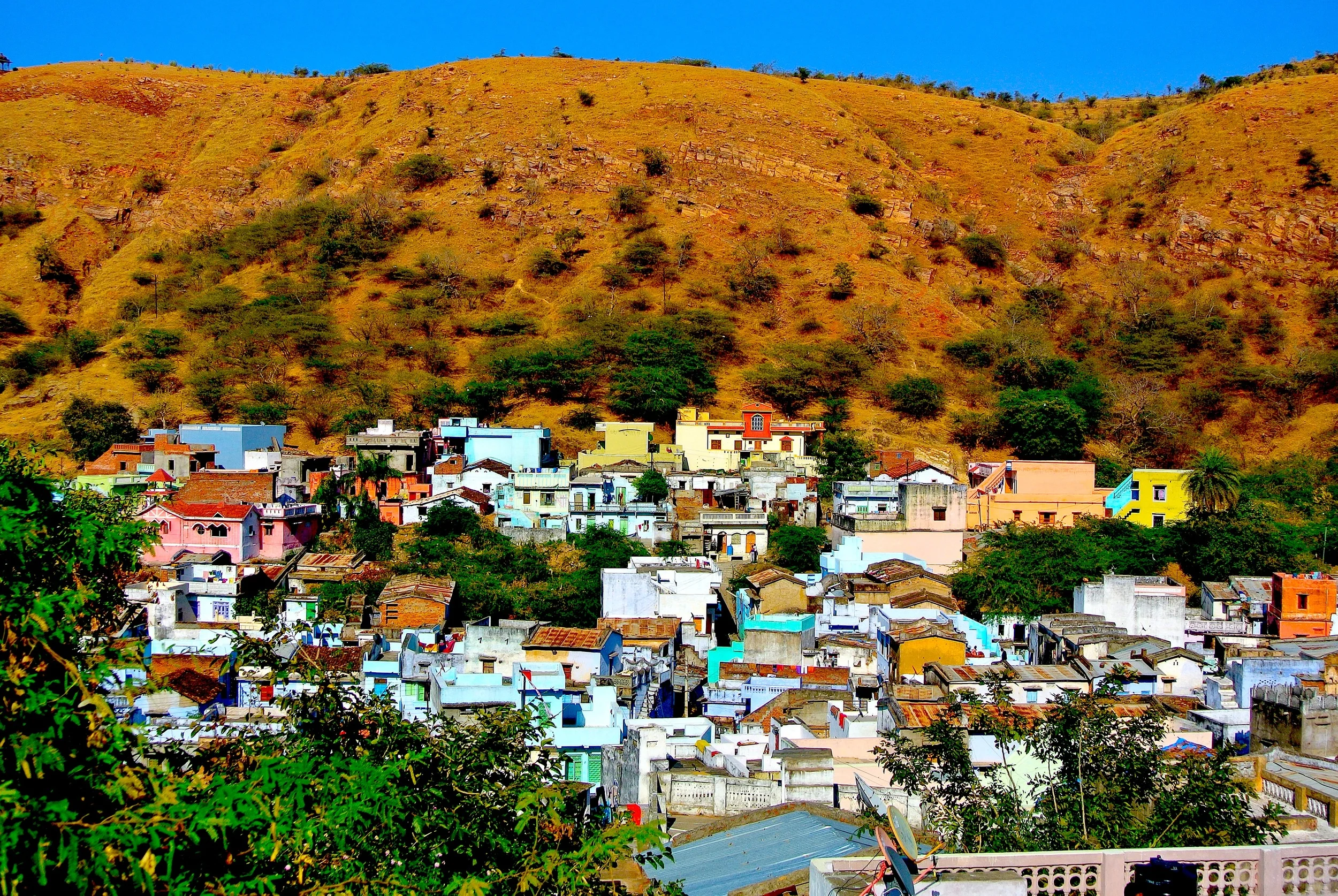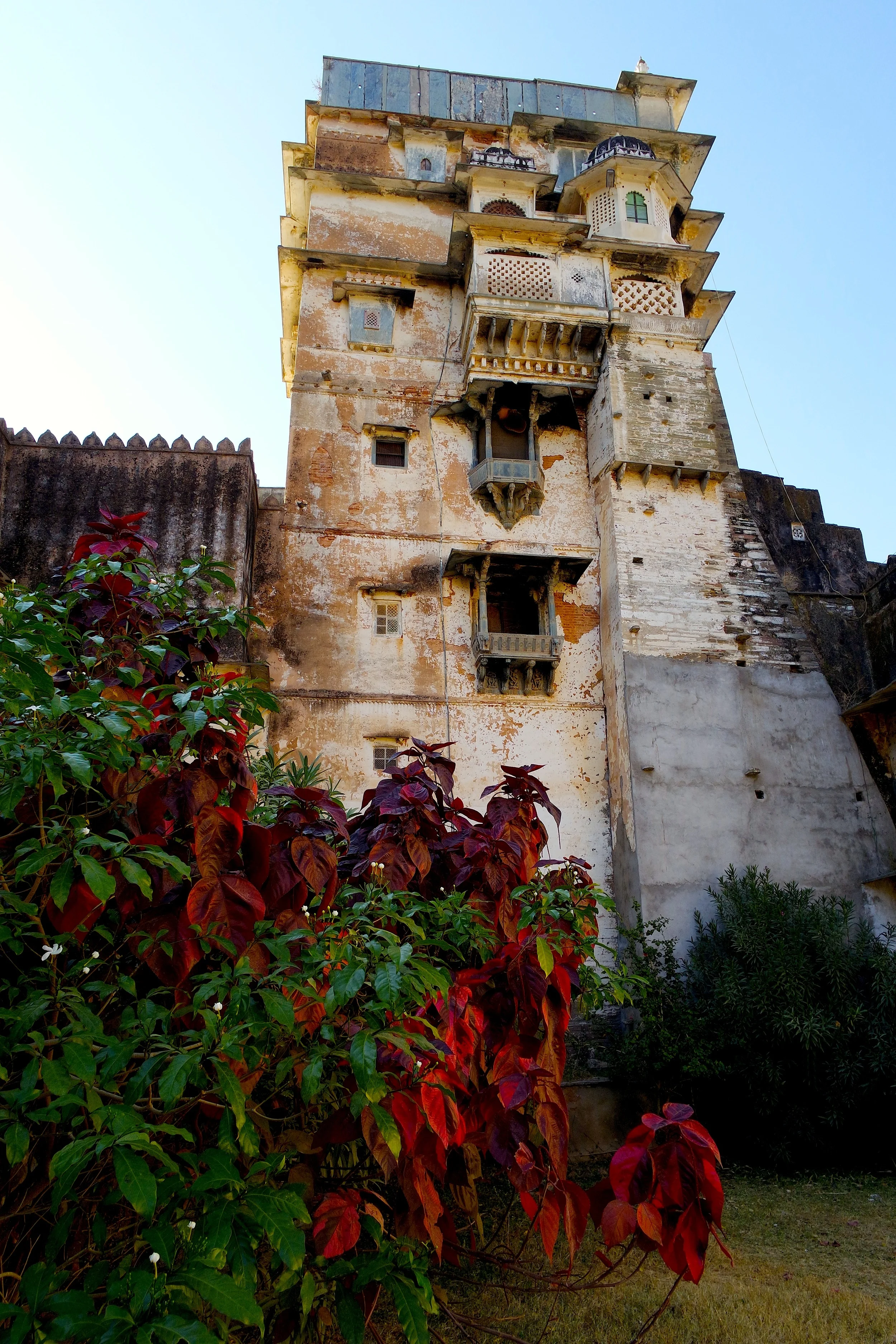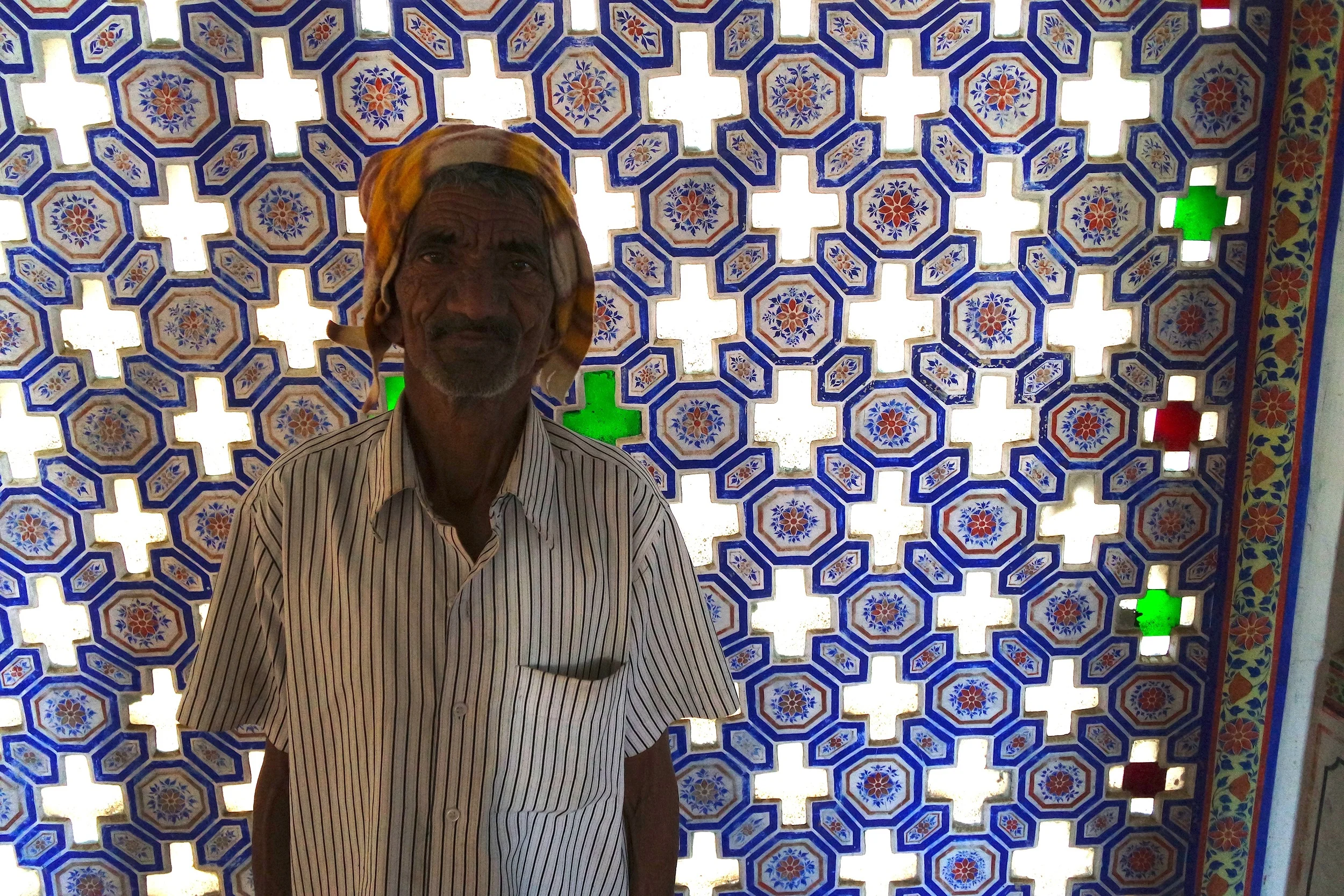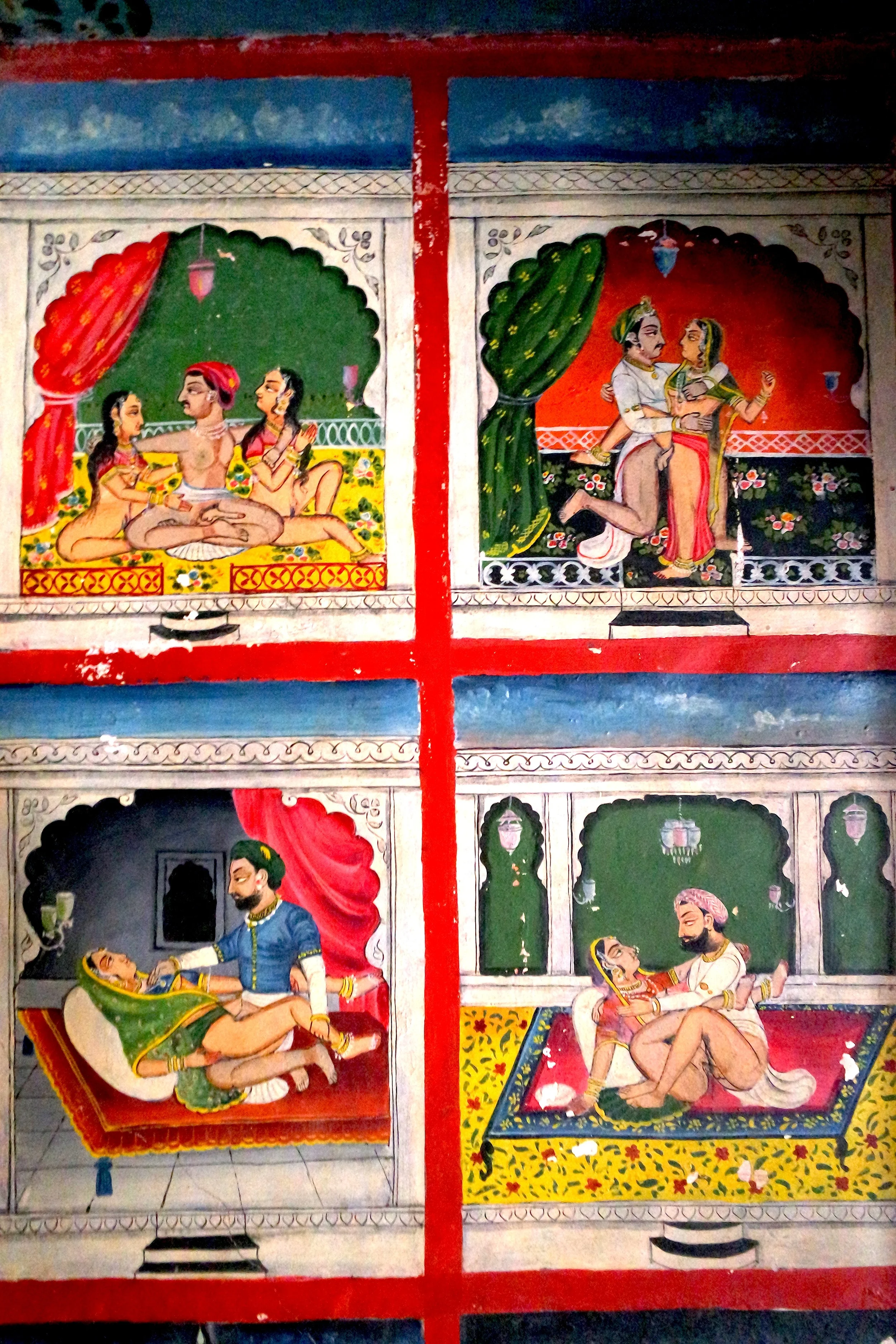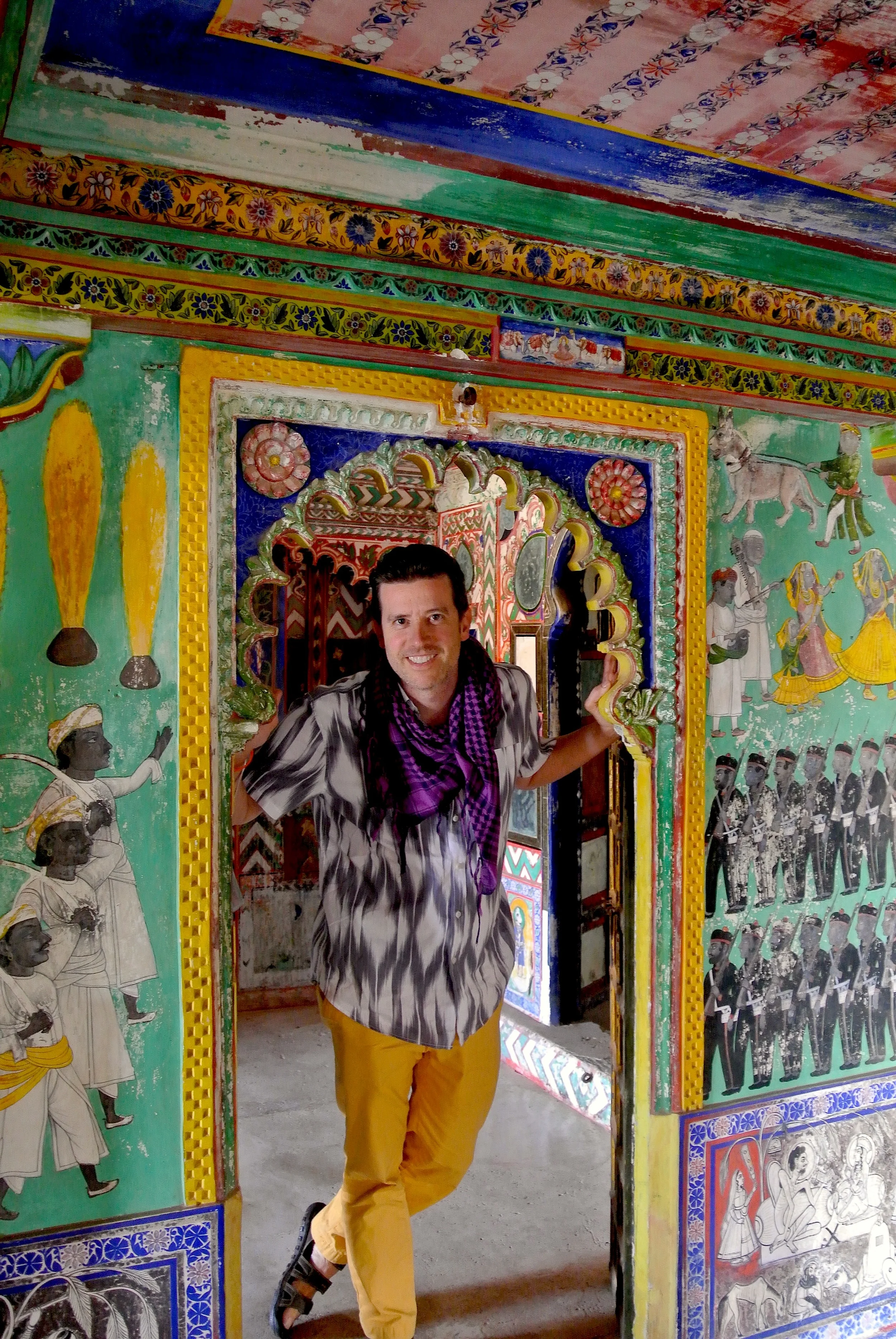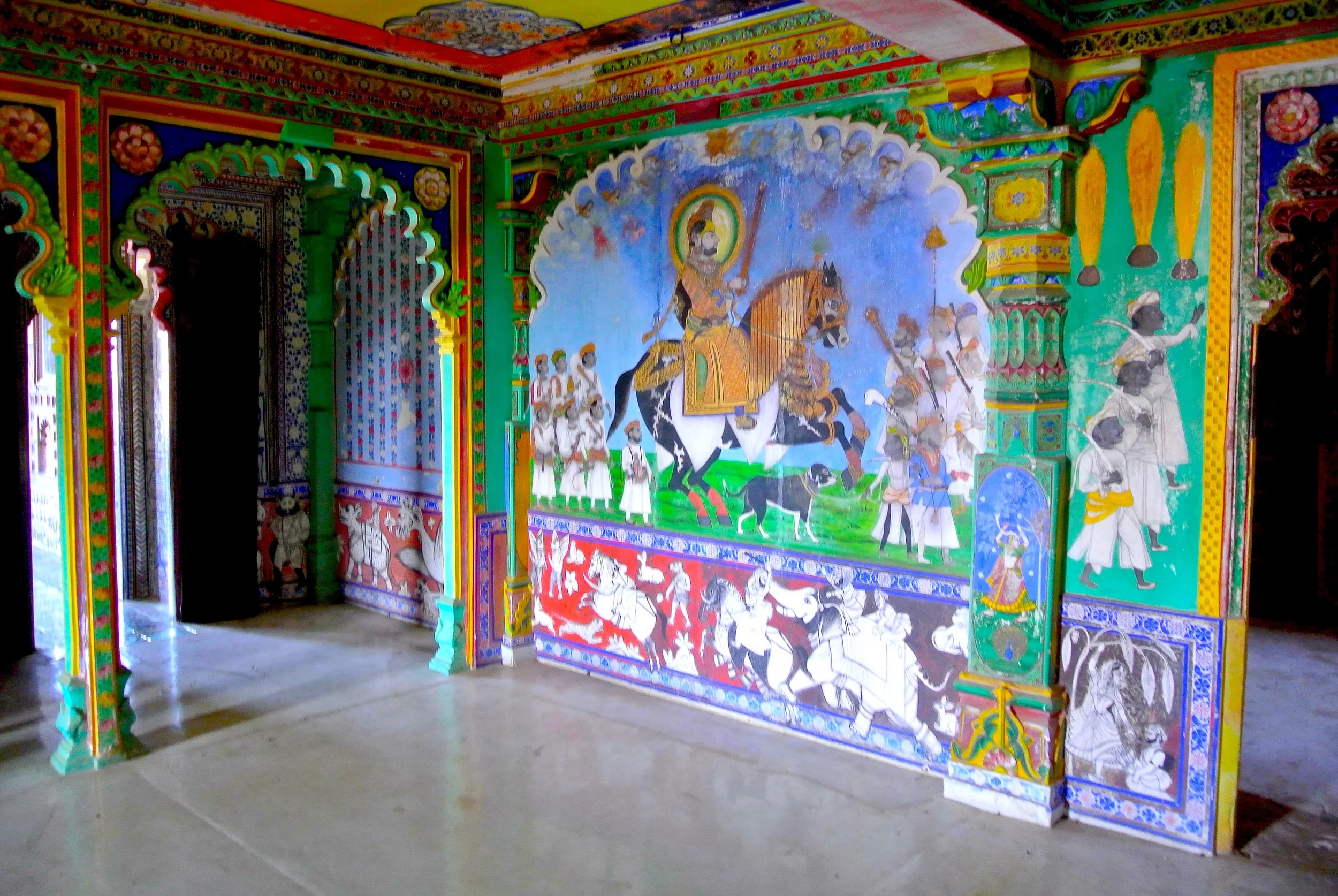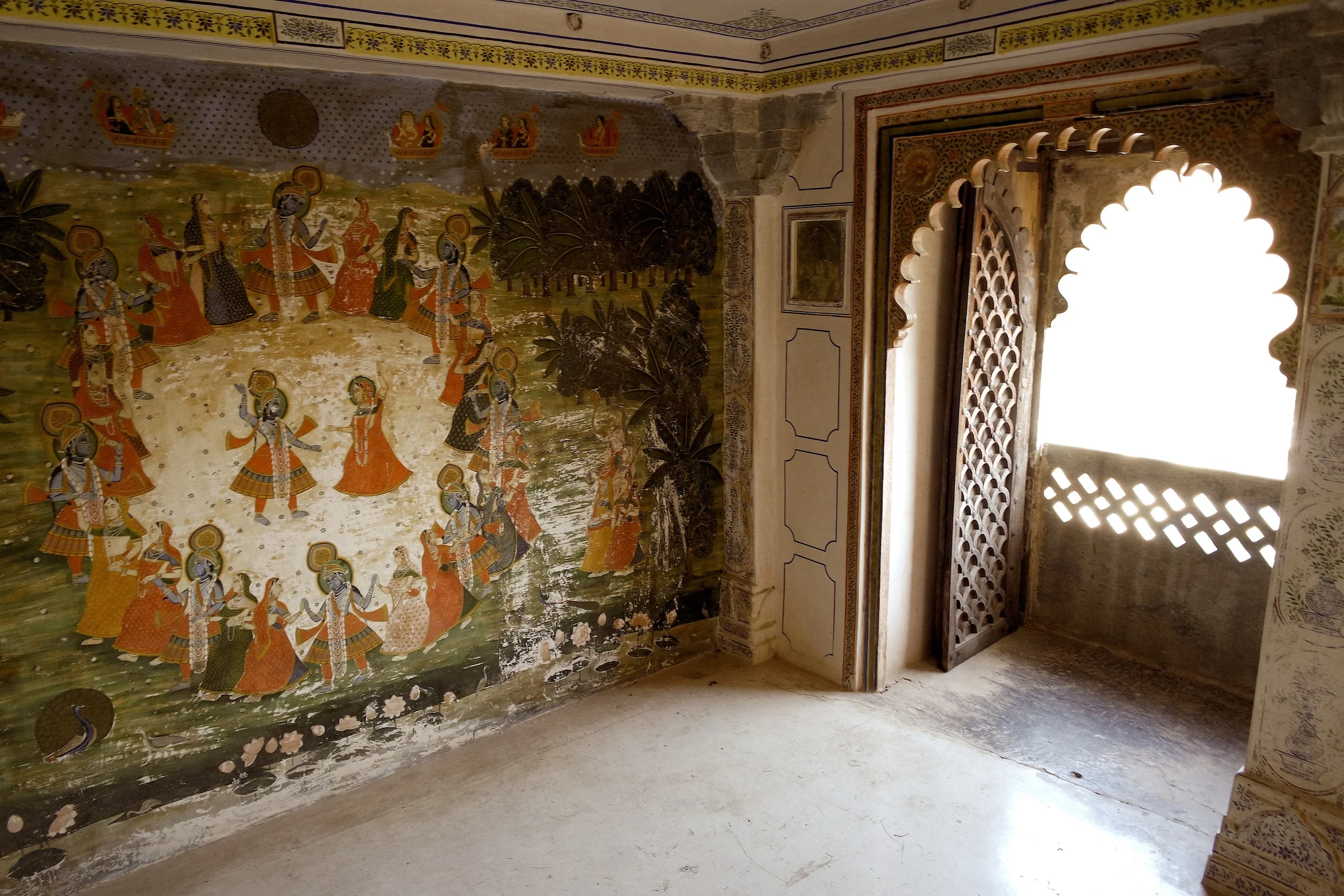The reception hall in the Juna Mahal
One of Rajasthan’s lesser-known sites, the Juna Mahal is filled with brightly painted rooms — and a naughty collection of scenes from the Kama Sutra.
I first learned about the former royal residence from the book India: In Word and Image by photographer Eric Meola. He described the Juna Mahal as one of his favorite under-the-radar places, a faded old palace (indeed, that’s what its name translates to), located in the quiet town of Dungapur.
No longer occupied, visits are arranged upon request, which our hotel coordinated for us in advance.
“Hidden inside a cupboard on an upper floor were scenes from the Kama Sutra.”
The colorful town of Dungarpur
Perched on the brow of a hill with a panoramic view of the colorful village of Dungapur sprawled out below, the seven-story palace exterior resembles a narrow, dilapidated fortress. The façade is embellished with friezes carved from bluish-gray pareva stone.
A single staircase connects all seven floors of the Juna Mahal, or Old Palace
Once we entered the palace, an elderly man with leathery skin and a smiling face, most likely the Juna Mahal’s guardian, ushered us from room to room.
Our silent guide led us from room to room
Late afternoon light streamed through the windows, lingering upon the colorful murals, frescoes and an interior apartment that contains a glass and mirror inlay.
Hidden inside a cupboard on an upper floor were scenes from the Kama Sutra, India’s revered treatise on sexuality.
A cabinet on one of the top floors of the Juna Mahal depicts naughty scenes from the Kama Sutra
The rooftop is covered with a mosaic of broken pottery pieces and offers a magnificent view of the landscape.
Wally in the Juna Mahal
This extraordinary structure is the embodiment of both splendor and decline. It was in use until the mid-20th century and is one of the oldest continuously inhabited buildings in the country.
The brightly painted but fading walls of the Juna Mahal in Dungarpur, India
It is currently on the watch list of the World Monuments Fund, a New York City-based nonprofit organization whose goal is to preserve architectural and cultural heritage sites around the globe.
A room at the top of the Juna Mahal
The vividly painted and decorated rooms are fun to explore — and the luxe accommodations nearby make this a great stop on a tour of Rajasthan. –Duke
